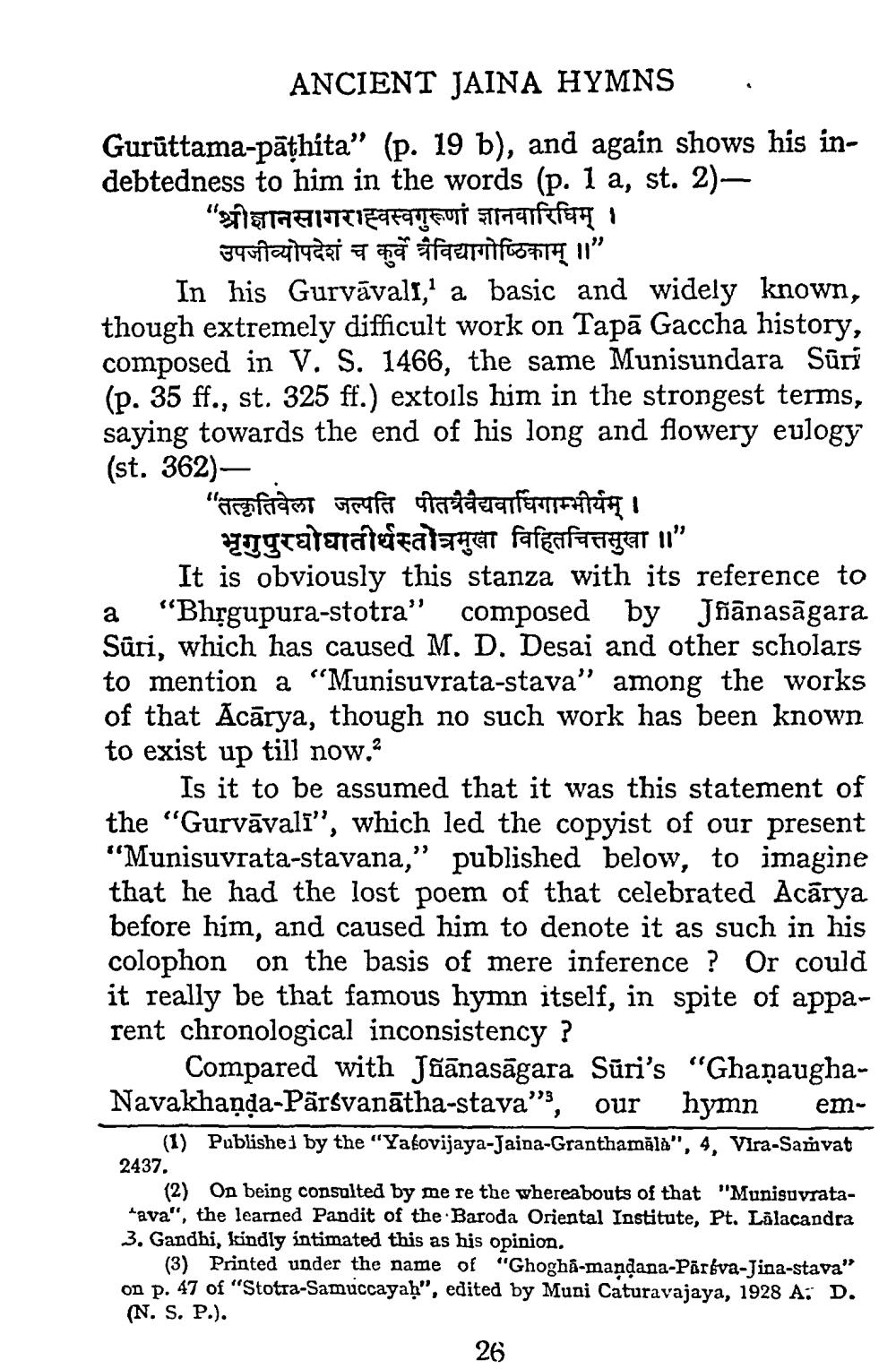________________
ANCIENT JAINA HYMNS Gurūttama-pāthita” (p. 19 b), and again shows his indebtedness to him in the words (p. 1 a, st. 2)—
"श्रीज्ञानसागरावस्वगुरूणां ज्ञानवारिधिम् ।
उपजीव्योपदेशं च कुर्वे त्रैविद्यागोष्ठिकाम् ॥"
In his Gurvāvall,' a basic and widely known, though extremely difficult work on Tapā Gaccha history, composed in V. S. 1466, the same Munisundara Sûri (p. 35 ff., st. 325 ff.) extoils him in the strongest terms, saying towards the end of his long and flowery eulogy (st. 362)— ___"तत्कृतिवेला जल्पति पीतत्रैवैद्यवापिंगाम्भीर्यम् ।
भृगुपुरघोघातीर्थस्तोत्रमुखा विहितचित्तसुखा ॥"
It is obviously this stanza with its reference to a "Bhrgupura-stotra" composed by Jhānasāgara Sûri, which has caused M. D. Desai and other scholars to mention a "Munisuvrata-stava" among the works of that Ācārya, though no such work has been known to exist up till now.
Is it to be assumed that it was this statement of the "Gurvāvali'', which led the copyist of our present "Munisuvrata-stavana," published below, to imagine that he had the lost poem of that celebrated Acārya before him, and caused him to denote it as such in his colophon on the basis of mere inference ? Or could it really be that famous hymn itself, in spite of apparent chronological inconsistency ?
Compared with Jáānasāgara Sūri's “GhanaughaNavakhaņda-Pärsvanātha-stava”, our hymn em
(1) Published by the "Yalovijaya-Jaina-Granthamāls", 4, Vira-Sarvat 2437.
(2) On being consulted by me re the whereabouts of that "Munisuvrata'ava", the learned Pandit of the Baroda Oriental Institute, Pt. Lālacandra 3. Gandhi, kindly intimated this as his opinion.
(3) Printed under the name of "Ghogha-mandana-Pärsva-Jina-stava" on p. 47 of "Stotra-Samuccayaḥ", edited by Muni Caturavajaya, 1928 A: D. (N. S. P.).
26




